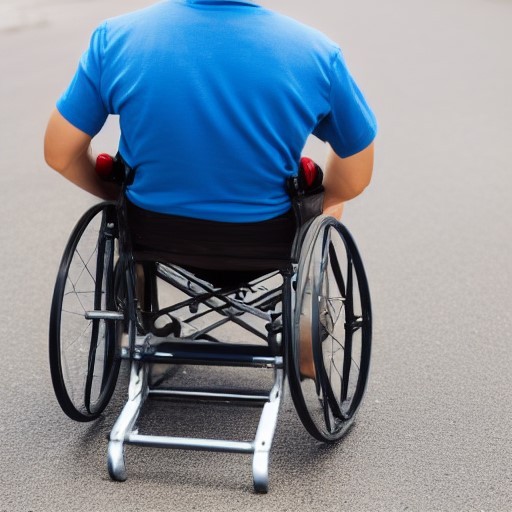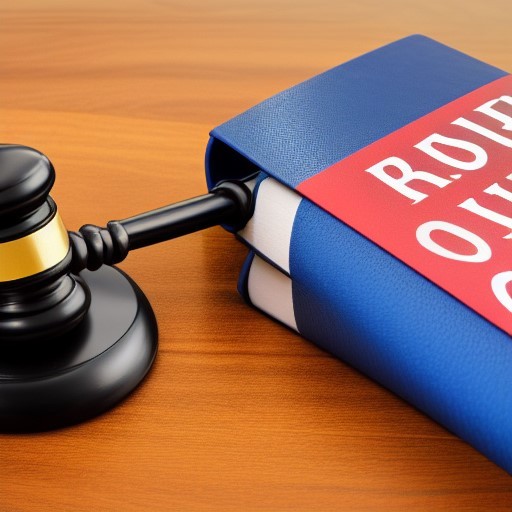Personal Injury Lawsuit Virginia
In a recent personal injury case, the plaintiff has rewarded 2.9 million dollars after suffering injuries in a car accident. The award is one of the largest in the state’s history. With so much money on the line, it’s important to understand how these cases work and what you can do to improve your chances of winning a large personal injury award.
There are a few key things to remember if you’ve been injured in an accident and are considering filing a personal injury lawsuit in Virginia.
This blog post will cover many topics related to personal injury law in VA so that you will be best prepared if you ever need to file a lawsuit.

What Is A Personal Injury Lawsuit?
A personal injury lawsuit is a legal claim filed by an injured person against the person or entity responsible for their injuries. Filing a personal injury lawsuit is to seek financial compensation for the injuries suffered.
This type of lawsuit can be filed for any physical, emotional, and psychological injury. In some cases, punitive damages may also be awarded to punish the at-fault party and deter them from engaging in similar conduct in the future.
Personal Injury Lawsuit Timeline
How To File A Personal Injury Lawsuit? The personal injury lawsuit timeline can vary depending on the injuries’ severity, the case’s strength, and other factors. In most cases, the following steps will take place:
1. The injured person (the plaintiff) files a personal injury lawsuit against the responsible party (the defendant).
2. The defendant is served with legal papers and has a certain amount of time to respond.
3. The discovery process begins, during which both sides gather evidence and take depositions.
4. The case may be settled out of court at any point during the process, or it may go to trial.
5. If the case goes to trial, a jury will hear the evidence and render a verdict.
6. If the plaintiff wins, they will be awarded damages.
What Are The Different Types Of Personal Injury Cases?
There are many different types of personal injury cases, but some of the most common include:
- Car accidents
- Truck accidents
- Motorcycle accidents
- Bicycle accidents
- Pedestrian accidents
- Slip/fall accidents
- Dog bite cases
- Defective product cases
- Nursing home abuse and neglect cases
- Medical malpractice cases

How Does A Personal Injury Lawsuit Work?
How Does Personal Injury Lawsuit Work? If you’ve been injured in an accident, you may wonder how a personal injury lawsuit works. First, you should know that you don’t have to go through this process alone. You can hire a personal injury lawyer to help you with your case.
Your lawyer will handle all the legal work involved in filing and pursuing your injury lawsuit. This includes investigating the accident, gathering evidence, filing the necessary paperwork, and dealing with the insurance companies.
Your lawyer will also be your advocate throughout the entire process, ensuring that your rights are protected and that you receive the full compensation you’re entitled to.
Chances Of Winning A Personal Injury Lawsuit
While there’s no guarantee that you’ll win your injury lawsuit, statistics show that plaintiffs are successful in about two-thirds of all cases that go to trial.
Of course, the chances of winning your case will depend on the specific facts of your case and the strength of the evidence. An experienced personal injury lawyer will be able to evaluate your case and give you an estimate of your chances of success.
Personal Injury Lawsuit Settlement Amount
What are personal injury lawsuit settlement amounts? The answer to this question varies depending on the facts of each case. Some factors that will affect the settlement amount include:
- The severity of the injuries suffered
- The cost of medical treatment
- Lost wages
- Pain and suffering
- Emotional distress
- Punitive damages (in some cases)
Injury lawsuits can be financially rewarding, but they are not without their challenges. The median payout for personal injury cases is approximately $52K- which may seem like a lot until you consider that most victims with moderate injuries get between 3k and 10 thousand dollars depending on the severity of their wounds!
How Long Does A Personal Injury Lawsuit Take
How long does a personal injury lawsuit take? The answer to this question depends on many factors, including the injuries’ severity, the case’s strength, and whether or not the parties can reach a settlement agreement. In most cases, the entire process can take anywhere from one to two years.
Some personal injury cases can be resolved quickly, such as minor injuries and simple negligence. However, cases that go to trial tend to take longer, as more time is needed for discovery, motions, and the trial itself.

Personal Injury Lawsuit Loan
If you’re considering filing a personal injury lawsuit, you may wonder if you can get a loan to cover your expenses. The answer is yes; you can get a personal injury lawsuit loan.
A personal injury lawsuit loan is a type of funding that allows you to borrow money against the future settlement of your case. This means you don’t have to pay the money back unless you win your case.
If you’re considering applying for a personal injury lawsuit loan, it’s important to understand how they work and the loan terms. Here are some things you should know:
1. Personal injury lawsuit loans are not traditional loans. They are considered “non-recourse” loans, meaning you are not personally liable for the loan if you don’t win your case.
2. The interest rates on personal injury lawsuit loans are typically very high. This is because the lender is taking on a lot of risk by loaning you money that you may not be able to repay.
3. Personal injury lawsuit loans are typically only available for cases with a good chance of winning. This is because the lender wants to be sure they can recoup their investment.
4. Personal injury lawsuit loans are not always easy to get. Many lenders are very selective about who they will lend to.
5. You should always speak with an experienced personal injury lawyer before applying for a lawsuit loan. They can help you understand the risks and benefits of taking out a loan and help you find a reputable lender.
What Happens If You Lose A Personal Injury Lawsuit?
If you lose a personal injury lawsuit, you may be required to pay the other party’s costs and attorneys’ fees. You may also be liable for any damages the other party suffers due to your actions.
In some cases, you may be able to appeal the decision if you believe the court made a mistake in its ruling. However, appeals can be costly and time-consuming, so it’s important to speak with an experienced personal injury lawyer before deciding whether or not to appeal.
How To Win A Personal Injury Lawsuit?
There is no surefire answer to this question, as every personal injury case differs. However, there are some things that you can do to increase your chances of winning a personal injury lawsuit.
- Hire an experienced personal injury lawyer.
- Gather as much evidence as possible to support your claim.
- Make sure you are well-prepared for all court hearings and depositions.
- Stay calm and collected during all proceedings.
- Be honest and cooperative with your lawyer.
Frequently Asked Questions (FAQs)
How Is Pain And Suffering Calculated In Virginia?
The total medical costs are multiplied by a certain factor to determine the amount of pain and suffering compensation. This range is generally between two and five, though it is sometimes determined by the severity of the victim’s injuries.
How Long After An Accident Can You Sue In Virginia?
In Virginia, you generally have two years to file a personal injury lawsuit from your accident. This is known as the statute of limitations.
What Is Personal Injury In Virginia?
Personal injury is any physical or psychological injury that you suffer due to another person’s negligence. This can include injuries suffered in car accidents, slip and fall accidents, dog bites, and more.
How Long Do You Have To File A Personal Injury Claim In Virginia?
In Virginia, you have two years from your accident to file a personal injury claim. This is known as the statute of limitations.
Final Verdict
A variety of different accidents can cause personal injuries in Virginia. The laws in Virginia allow you to file a lawsuit against the responsible party if you are injured due to their negligence.
Hence, you should always speak to an experienced personal injury lawyer to ensure you are taking the best course of action for your particular case.





